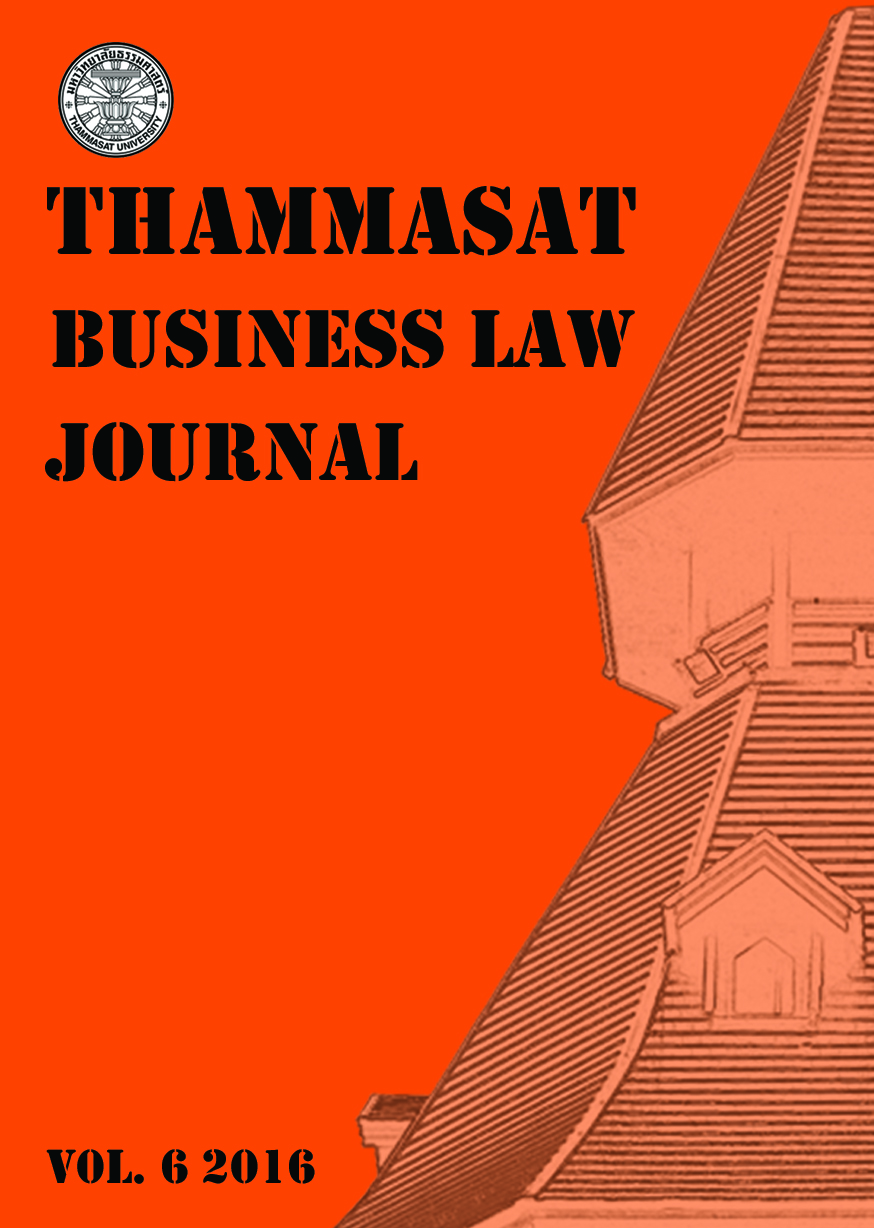A COMPARATIVE STUDY OF COMPENSATION FOR DAMAGE RESULTING FROM MINING ACTIVITIES IN JAPAN AND THAILAND
Main Article Content
Abstract
Thailand has been experiencing severe environmental problems resulting from mining activity such as environmental damage and health damage. Mine pollution and it’s compensation for victims are one of the serious problems which need to be addressed immediately in order to impose compensation in accordance with Polluter Pays Principle (PPP). This thesis focuses on compensation for health and environmental damage resulting from mining activity and examines how victims can get the appropriate and reasonable value of compensation by identifying defendant properly compared with Japanese and Thai laws.
Focusing on Japanese laws concerning compensation for damage resulting from mining activity, there are three main and significant laws; Mining Act, Pollution Related Health Damage Compensation Act, Water Pollution Control Law. On the other hand, Thai laws such as the Enhancement and Conservation of National Environmental Quality Act of 1992, Mineral Act of 2002, the Navigation in the Thai waters Act of 1992 also impose compensation for mine damage, however, there is still no clear standard and guideline or method to be used in assessing mine pollution damage. Therefore, this leads to one of the most obstacles that victims can’t be awarded the appropriate and reasonable value of compensation.
Thus, in order to overcome issues of compensation for damage by identifying defendant more effective, standards concerning scope of mine damage compensation and calculation methods of compensation had better be established clearly. Thai laws had better adopt concept of “Extended Producer Responsibility” which covers not only prevention of pollution but also remediation.
Additionally, section 131/1 of Minerals Act of 2002 had better revise explicitly to mention what types of activities are applicable to compensation to ease difficulty of identifying defendant. Besides, section 88/12 of Minerals Act of 2002 should not be limited to cover “within the mining area” concerning scope of compensation to be awarded.
Article Details
References
United Nations Environment Programme, Liability and Compensation for Environmental Damage
M.J. Chadwick, N.H. Highton, and N.Lindman, Environmental impacts of coal mining and utilization
H. Sebnem Duzgun & Nuray Demirel, Remote sensing of the mine environment
Alexandre Timoshenko, Liability and compensation for environmental damage
Tokumoto Makoto, Research for Responsibility of the Mine Pollution Compensation
Awaji Takehisa, Theory of Compensation for Industrial Pollution
Yokemoto Satoshi, Liability for environmental Damage and Burden Expense
Japan Environmental Management Association for Industry, Technology and Legislation of prevention of pollution
Isono Yayoi, Present Condition and Future Task of Environmental damage lawsuit in Japan
Chen-Ju Chain, “The Liability and Compensation Mechanism under International Marine Environmental Law”, LOSI Conference Papers, 2012
Ondrej Vicha, “Polluter Pays Principle in OECD Recommendations and its application in international and EC/EU Law”, CYIL 2 ( 2011) P. 57-67
Nuclear Energy agency organization for economic Co-operation and Development, “Japan’s Compensation System for Nuclear Damage”, @OECD 2012 NEA No.7089
Yoshimura Ryouichi, “Compensation for Environmental Damage”, Ritsumeikan University law department 2010(333, 334)
Eri Osaka, “Reevaluating the Role of the Tort Liability System in Japan”, Law journal V26, N2 2009


